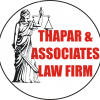Property law concept Adverse possession, sometimes colloquially described as “squatter’s rights”, [a] is a legal principle under which a person who does not have legal title to a piece of property usually land ( real property ) may acquire legal ownership based on continuous possession or occupation of the property without the permission ( license ) of its legal owner.
The possession by a person is not adverse if they are in possession as a tenant or licensee of the legal owner.
In general, a property owner has the right to recover possession of their property from unauthorized possessors through legal action such as ejectment . However, in the common law tradition, courts have long ruled that when someone occupies a piece of property without permission and the property’s owner does not exercise their right to recover their property for a significant period of time, not only is the original owner prevented from exercising their right to exclude, but an entirely new title to the property “springs up” in the adverse possessor. In effect, the adverse possessor becomes the property’s new owner.
Over time, legislatures have created statutes of limitations that specify the length of time that owners have to recover possession of their property from adverse possessors. In the India, for example, these time limits vary widely between individual and government, ranging from as low as 12 years to as long as 30 years. Although the elements of an adverse possession action are different in every jurisdiction, a person claiming adverse possession is usually required to prove non-permissive use of the property that is actual, open and notorious, exclusive, adverse and continuous for the statutory period.

I read this article fully on the topic of the difference of most recent and previous technologies, it’s
amazing article.